In fact, there have been several other violent political disagreements in the United States. Throughout history, the actions of a destructive few have gone against the spirit of democracy. Some have even led to death. Here are ten of the most intense face-offs in American political history.
10 Matthew Lyon vs. Roger Griswold
Connecticut’s Roger Griswold and Vermont’s Matthew Lyon never got along. In 1798, Lyon spat tobacco juice in Griswold’s eye and accused the Federalist of being a coward. So when the Republican spoke against the threat of war with France that year, Griswold saw his chance for revenge. Griswold supported then-President John Adams’s hawkish approach to France and took Lyon to task for opposing war. Watch this video on YouTube In late January, the House of Representatives met to decide whether to expel Lyon for spitting in Griswold’s face. Unfortunately, Griswold’s Federalist backers couldn’t get enough votes to remove Lyon. So the Connecticut politician tried to do it himself. On February 15, one day after the vote failed, Griswold grabbed a hickory cane, walked up to Lyon in the chamber, and began beating the shocked politician. Lyon grabbed a nearby fire stoker to defend himself, and the fight was on. Other members of Congress rushed to pull the men apart as they beat each other mercilessly. Eventually, the men were separated. However, the awful fight was immortalized in political cartoons. The images revealed to the public the first signs of vicious partisan tension in American politics.[1]
9 John Quincy Adams vs. Andrew Jackson
When Andrew Jackson faced off against John Quincy Adams for the presidential election of 1828, bad blood had long been simmering. The two rivals had faced off four years earlier, with Adams winning the first race. However, historians have uncovered no shortage of shady backroom political dealing in Adams’s favor the first time around. Then, when 1828 rolled around, Adams used the second campaign to spread rumors about Jackson’s wife, Rachel. Jackson ended up winning the vote, but Rachel died before he could be inaugurated. Angered over her passing, he blamed Adams’s allegations for contributing to her death. On Inauguration Day in 1829, Jackson’s supporters were riled up. They stormed the White House after he was sworn into office. Adams escaped out a back exit to avoid the angry crowd seeking revenge for their leader and his late wife. But while Adams may have been able to skirt away from the situation, others weren’t so lucky. Socialite Margaret Smith was an eyewitness to the ugly event on that fateful January day. She wrote to a friend about seeing men fighting at the White House: “Ladies fainted, men were seen with bloody noses, and such a scene of confusion took place as is impossible to describe.”[2]
8 Jonathan Cilley vs. William Graves
The 1830s were a time of deeply partisan politics. Among other issues, Democrats believed major newspapers were slanted in favor of the rival Whig party. Political opponents railed against news coverage for years. Controversy over the bias reached a fever pitch in 1838. Early that year, Maine Rep. Jonathan Cilley delivered a speech on the floor of the House. In it, he accused newspaper editor John Webb of taking bribes from Whig politicians. Webb was furious at the allegation and wrote to Cilley, challenging him to a duel. The journalist asked Kentucky Rep. William Graves to deliver his letter. When Graves met Cilley to hand him the written challenge, the Maine politician refused to take the letter. Offended by the perceived slight, Graves also challenged Cilley to a duel. Frustrated with Graves’s anger, Cilley accepted. Despite not having any prior ill will between them, the two agreed to a shootout in February of that year. On the fateful day, both Graves and Cilley missed the mark on their first two shots. The third time proved to be the charm for Graves, though. Cilley was struck with a bullet from the Kentucky man’s gun and bled to death.[3]
7 Thomas Hart Benton vs. Henry Foote
Longtime South Carolina politician John C. Calhoun’s death in 1850 should have been a cause for remembrance. Instead, it proved to be the kindling that sparked a nasty pre-Civil War feud between lawmakers. The discord began during a memorial for Calhoun. Mississippi’s Henry Foote and Missouri’s Thomas Hart Benton started yelling insults at each other. Violence didn’t break out, but Vice President Millard Fillmore was alarmed by the tensions. On April 3, Fillmore issued a warning to the chamber: “A slight attack, or even insinuation, of a personal character, often provokes a more severe retort, which brings out a more disorderly reply, each Senator feeling a justification in the previous aggression.” Watch this video on YouTube Two weeks later, Foote and Benton argued in the Senate again. During the spat, Benton moved toward Foote. Believing himself to be in danger, the Mississippi senator pulled out a pistol and pointed it at Benton. Thankfully, cooler heads prevailed. Other senators convinced Foote to put down the gun, and he did so. The men were separated without any blood being shed. Nobody was hurt that day, though the visceral partisan hate that would lead to the Civil War was only just beginning.[4]
6 David Terry vs. David Broderick
David Terry and David Broderick were part of the same political party yet still found a way to fall into violence. The men were both California Democrats in the 1850s but on opposite sides of the slavery issue. Terry, the Chief Justice of the California State Supreme Court, was in favor of slavery and wanted California admitted to the Union as a slave state. Broderick, a state senator, believed California should be a free state. Their friendship fell apart as their public disagreement deepened ahead of the Civil War. Then, in 1859, Terry lost re-election for his spot on the state Supreme Court. Enraged at the loss, Terry blamed Broderick’s anti-slavery agitation for the failure. In a speech after the campaign, the pro-slavery politician insulted his former friend. Broderick replied with his own public insults against Terry, and the fight was on. Terry challenged Broderick to a duel. On September 13, 1859, the men met their fate. Broderick won a coin toss to choose the position, but in turn, Terry got to choose the weapons. Terry’s choice proved fateful: He picked pistols that were unfamiliar to Broderick. When the abolitionist’s gun misfired, Terry’s didn’t, and Broderick was struck down by a bullet. The anti-slavery politician died a hero for his cause. Meanwhile, Terry fled California to fight for the Confederacy in the Civil War.[5]
5 Preston Brooks vs. Charles Sumner
In 1856, Massachusetts Senator Charles Sumner delivered one of the most divisive speeches in Senate history. On the floor in front of the entire gallery, Sumner slammed South Carolina Senator Andrew Butler over the issue of slavery in southern states. Sumner, an abolitionist, used his speech to warn against admitting Kansas to the Union as a slave state. He then accused Butler of having “a mistress… ugly to others… who is chaste in his sight—I mean the harlot, Slavery.” Butler was not present in the Senate that day, but others were shocked at the provocative speech. Three days later, South Carolina Representative Preston Brooks—who was also Butler’s cousin—heard about the speech. The angry congressman rushed into the Senate and attacked Sumner with a metal-tipped cane. Brooks beat Sumner over the head until he fell, striking him for over a minute before leaving the senator bloodied and nearly unconscious. Finally, Brooks left the chamber. Other stunned Senators rushed Sumner to a doctor. Brooks was censured in the Senate and resigned from the House of Representatives. However, citizens in South Carolina were buoyed by his violent act and re-elected him. He died in 1857, though, after a sudden bout with croup. As for Sumner, he ended up serving three more terms in the Senate. Today, historians recognize “the caning of Charles Sumner” as one of the key moments that pushed the country into the bloody Civil War.[6]
4 “Bowie Knife” Potter vs. Roger Pryor
Four years after the caning of Charles Sumner, another violent disagreement in Congress pushed the country further toward the Civil War. In 1860, Illinois’s Owen Lovejoy was debating the ethics of slavery with Virginia’s Roger Pryor. Lovejoy, an abolitionist, was arguing against the practice when the southern congressman jumped up and waved his fist in the man’s face. Enraged at the show of disrespect, Wisconsin member John Fox Potter began screaming at Pryor. The pro-slavery congressman accused Potter of interfering with the debate. Pryor then challenged Potter to a duel, which was a normal practice at the time. Potter accepted the offer but upped the ante: He would only fight if both men engaged in hand-to-hand combat with bowie knives. Shocked at the grisly challenge, Pryor backed down. Potter’s vicious defense of abolition and Lovejoy immediately won him fame, while Pryor’s retreat earned scorn. Potter’s colleagues nicknamed him “Bowie Knife.” Admirers from across the country mailed bowie knives to the Republican. He was even presented with a seven-foot ceremonial knife inscribed with the pun: “To John Fox Potter, who will always meet a Pryor engagement.” But while the challenge earned Potter fame and respect, it also hastened the country’s descent into war.[7]
3 “Bowie Knife” Potter Returns for More
Kansas’s admission to the Union was one of many factors leading to the Civil War. Southern politicians demanded the Jayhawk State allow slavery upon its admission. Northern abolitionists wanted Kansas to be a free state. Disagreements over the issue soon led to violent actions. In 1858, the House of Representatives was debating the question of Kansas when Pennsylvania Republican Galusha Grow and South Carolina Democrat Laurence Keitt began yelling insults at each other. The two men were overcome by their emotions and started to fight. Sadly, dozens of other members of Congress joined the fray. Soon, the chamber descended into a violent brawl. More than 30 members of the House began throwing punches. Police were called, but the threat of arrest didn’t deter them. Then, Potter ended things in a way nobody expected. Along with fellow Wisconsin Rep. Cadwallader Washburn, Potter snatched the toupee off the top of Mississippi Rep. William Barksdale’s head. Barksdale was shocked by the theft. The rest of the House’s members were too. Fistfighting quickly devolved into laughing, and men from both parties paused their attacks to make fun of Barksdale’s newly-bald head. The lull in fighting allowed the sergeant-at-arms to separate the combatants, and the brawl ended.[8]
2 Robert Robertson vs. Indiana General Assembly
In 1886, Indiana Governor Isaac P. Gray was expected to fill a vacated U.S. Senate seat. So the state’s General Assembly held a vote to replace the Democrat and his lieutenant governor. Everyone expected Senate President Alonzo G. Smith, another Democrat, to win. Smith didn’t win, though. Instead, Republican Robert S. Robertson unexpectedly won the vote for lieutenant governor. Bitter over the results, Indiana General Assembly members tried to thwart Robertson’s attempts to take office for weeks. On February 23, 1887, the Indiana Supreme Court ruled in Roberston’s favor. The next day, the Republican walked into the state capitol and demanded his seat. Watch this video on YouTube Amid a furor in the chamber, a doorkeeper grabbed Robertson by the throat. Local news accounts claim the man “threw [Robertson] some 15 or 20 feet from the steps.” Angered by his loss, Smith ordered other attendants to remove Robertson from the building. Pushing and shoving led to fighting between factions. Robertson made a speech to his supporters outside, leading to another altercation. Finally, Robertson was seated. Ultimately, he got his own revenge of sorts when Gray ended up getting passed over for the U.S. Senate vacancy. The violent upheaval had long-term consequences too. It was one of several events that led to the passing of the 17th Amendment of the U.S. Constitution, calling for the direct election of senators by the public.[9]
1 John McLaurin vs. Benjamin Tillman
John McLaurin became South Carolina’s junior senator in 1896. His election was in no small part thanks to fellow Democrat Benjamin R. Tillman. Tillman was the Palmetto State’s senior senator and former governor and was McLaurin’s longtime mentor. Once sworn in, though, McLaurin began to turn away from his patron. On February 22, 1902, the Senate was debating a treaty to annex the Philippines when Tillman spoke on the floor. He used his time to launch into a vicious speech accusing McLaurin of having been corrupted by “improper influences.” McLaurin was not present at the speech, but the junior senator soon heard about Tillman’s words and rushed into the chamber. Once there, McLaurin accused Tillman of a “malicious and deliberate lie.” Incensed, the elder senator rushed at his former protegé and started throwing punches. In his rage, Tillman struck McLaurin and several other senators who were trying to separate the men. Hours later, the Senate held a closed session meant for the two former friends to apologize. The reconciliation attempt backfired, and McLaurin and Tillman nearly fought again. Six days later, the Senate censured both men. McLaurin’s political career wrapped later that year when he lost a re-election bid. For the rest of their days, the men never reconciled.[10]
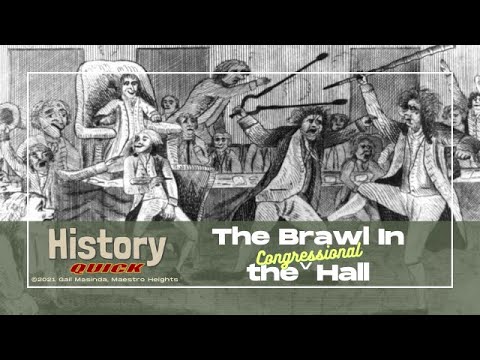

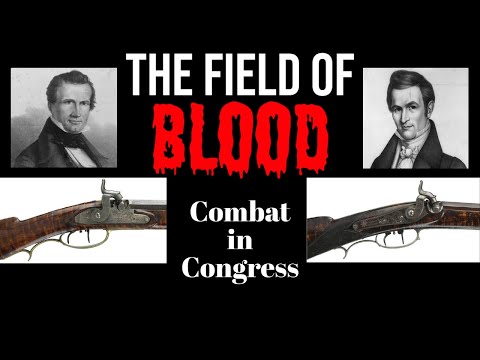
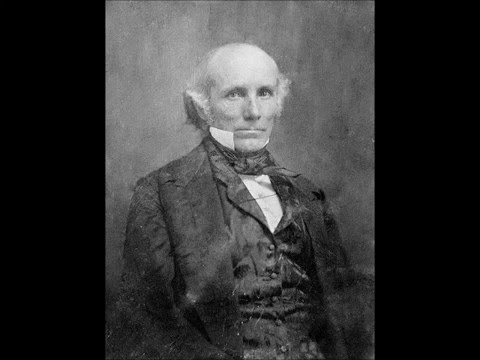
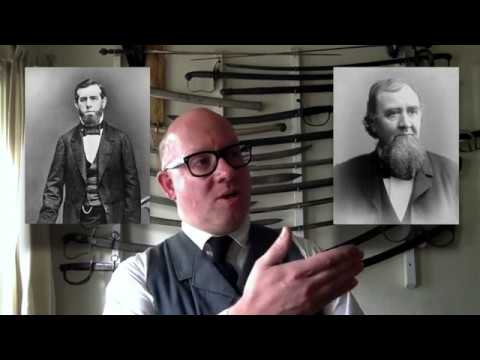
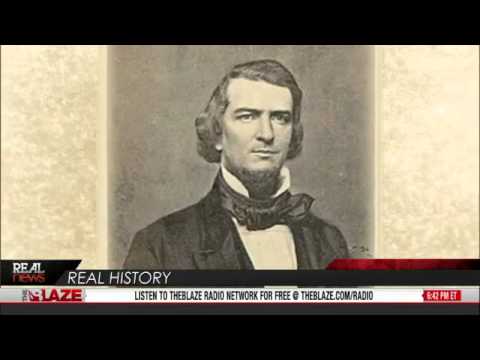
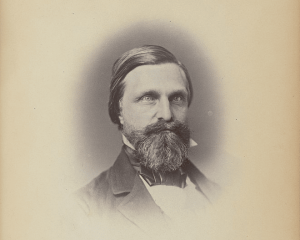
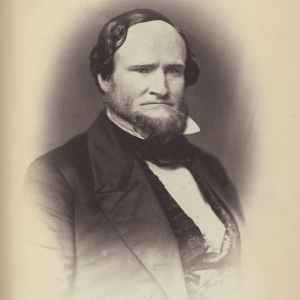
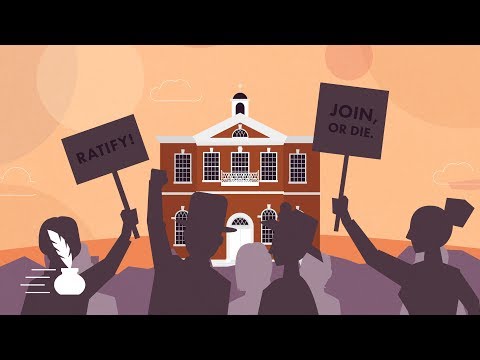
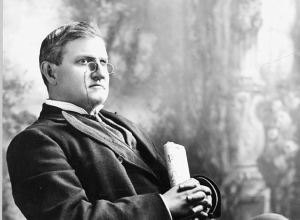















title: “Ten Vicious Violent Political Feuds From American History” ShowToc: true date: “2023-01-26” author: “William Green”
In fact, there have been several other violent political disagreements in the United States. Throughout history, the actions of a destructive few have gone against the spirit of democracy. Some have even led to death. Here are ten of the most intense face-offs in American political history.
10 Matthew Lyon vs. Roger Griswold
Connecticut’s Roger Griswold and Vermont’s Matthew Lyon never got along. In 1798, Lyon spat tobacco juice in Griswold’s eye and accused the Federalist of being a coward. So when the Republican spoke against the threat of war with France that year, Griswold saw his chance for revenge. Griswold supported then-President John Adams’s hawkish approach to France and took Lyon to task for opposing war. Watch this video on YouTube In late January, the House of Representatives met to decide whether to expel Lyon for spitting in Griswold’s face. Unfortunately, Griswold’s Federalist backers couldn’t get enough votes to remove Lyon. So the Connecticut politician tried to do it himself. On February 15, one day after the vote failed, Griswold grabbed a hickory cane, walked up to Lyon in the chamber, and began beating the shocked politician. Lyon grabbed a nearby fire stoker to defend himself, and the fight was on. Other members of Congress rushed to pull the men apart as they beat each other mercilessly. Eventually, the men were separated. However, the awful fight was immortalized in political cartoons. The images revealed to the public the first signs of vicious partisan tension in American politics.[1]
9 John Quincy Adams vs. Andrew Jackson
When Andrew Jackson faced off against John Quincy Adams for the presidential election of 1828, bad blood had long been simmering. The two rivals had faced off four years earlier, with Adams winning the first race. However, historians have uncovered no shortage of shady backroom political dealing in Adams’s favor the first time around. Then, when 1828 rolled around, Adams used the second campaign to spread rumors about Jackson’s wife, Rachel. Jackson ended up winning the vote, but Rachel died before he could be inaugurated. Angered over her passing, he blamed Adams’s allegations for contributing to her death. On Inauguration Day in 1829, Jackson’s supporters were riled up. They stormed the White House after he was sworn into office. Adams escaped out a back exit to avoid the angry crowd seeking revenge for their leader and his late wife. But while Adams may have been able to skirt away from the situation, others weren’t so lucky. Socialite Margaret Smith was an eyewitness to the ugly event on that fateful January day. She wrote to a friend about seeing men fighting at the White House: “Ladies fainted, men were seen with bloody noses, and such a scene of confusion took place as is impossible to describe.”[2]
8 Jonathan Cilley vs. William Graves
The 1830s were a time of deeply partisan politics. Among other issues, Democrats believed major newspapers were slanted in favor of the rival Whig party. Political opponents railed against news coverage for years. Controversy over the bias reached a fever pitch in 1838. Early that year, Maine Rep. Jonathan Cilley delivered a speech on the floor of the House. In it, he accused newspaper editor John Webb of taking bribes from Whig politicians. Webb was furious at the allegation and wrote to Cilley, challenging him to a duel. The journalist asked Kentucky Rep. William Graves to deliver his letter. When Graves met Cilley to hand him the written challenge, the Maine politician refused to take the letter. Offended by the perceived slight, Graves also challenged Cilley to a duel. Frustrated with Graves’s anger, Cilley accepted. Despite not having any prior ill will between them, the two agreed to a shootout in February of that year. On the fateful day, both Graves and Cilley missed the mark on their first two shots. The third time proved to be the charm for Graves, though. Cilley was struck with a bullet from the Kentucky man’s gun and bled to death.[3]
7 Thomas Hart Benton vs. Henry Foote
Longtime South Carolina politician John C. Calhoun’s death in 1850 should have been a cause for remembrance. Instead, it proved to be the kindling that sparked a nasty pre-Civil War feud between lawmakers. The discord began during a memorial for Calhoun. Mississippi’s Henry Foote and Missouri’s Thomas Hart Benton started yelling insults at each other. Violence didn’t break out, but Vice President Millard Fillmore was alarmed by the tensions. On April 3, Fillmore issued a warning to the chamber: “A slight attack, or even insinuation, of a personal character, often provokes a more severe retort, which brings out a more disorderly reply, each Senator feeling a justification in the previous aggression.” Watch this video on YouTube Two weeks later, Foote and Benton argued in the Senate again. During the spat, Benton moved toward Foote. Believing himself to be in danger, the Mississippi senator pulled out a pistol and pointed it at Benton. Thankfully, cooler heads prevailed. Other senators convinced Foote to put down the gun, and he did so. The men were separated without any blood being shed. Nobody was hurt that day, though the visceral partisan hate that would lead to the Civil War was only just beginning.[4]
6 David Terry vs. David Broderick
David Terry and David Broderick were part of the same political party yet still found a way to fall into violence. The men were both California Democrats in the 1850s but on opposite sides of the slavery issue. Terry, the Chief Justice of the California State Supreme Court, was in favor of slavery and wanted California admitted to the Union as a slave state. Broderick, a state senator, believed California should be a free state. Their friendship fell apart as their public disagreement deepened ahead of the Civil War. Then, in 1859, Terry lost re-election for his spot on the state Supreme Court. Enraged at the loss, Terry blamed Broderick’s anti-slavery agitation for the failure. In a speech after the campaign, the pro-slavery politician insulted his former friend. Broderick replied with his own public insults against Terry, and the fight was on. Terry challenged Broderick to a duel. On September 13, 1859, the men met their fate. Broderick won a coin toss to choose the position, but in turn, Terry got to choose the weapons. Terry’s choice proved fateful: He picked pistols that were unfamiliar to Broderick. When the abolitionist’s gun misfired, Terry’s didn’t, and Broderick was struck down by a bullet. The anti-slavery politician died a hero for his cause. Meanwhile, Terry fled California to fight for the Confederacy in the Civil War.[5]
5 Preston Brooks vs. Charles Sumner
In 1856, Massachusetts Senator Charles Sumner delivered one of the most divisive speeches in Senate history. On the floor in front of the entire gallery, Sumner slammed South Carolina Senator Andrew Butler over the issue of slavery in southern states. Sumner, an abolitionist, used his speech to warn against admitting Kansas to the Union as a slave state. He then accused Butler of having “a mistress… ugly to others… who is chaste in his sight—I mean the harlot, Slavery.” Butler was not present in the Senate that day, but others were shocked at the provocative speech. Three days later, South Carolina Representative Preston Brooks—who was also Butler’s cousin—heard about the speech. The angry congressman rushed into the Senate and attacked Sumner with a metal-tipped cane. Brooks beat Sumner over the head until he fell, striking him for over a minute before leaving the senator bloodied and nearly unconscious. Finally, Brooks left the chamber. Other stunned Senators rushed Sumner to a doctor. Brooks was censured in the Senate and resigned from the House of Representatives. However, citizens in South Carolina were buoyed by his violent act and re-elected him. He died in 1857, though, after a sudden bout with croup. As for Sumner, he ended up serving three more terms in the Senate. Today, historians recognize “the caning of Charles Sumner” as one of the key moments that pushed the country into the bloody Civil War.[6]
4 “Bowie Knife” Potter vs. Roger Pryor
Four years after the caning of Charles Sumner, another violent disagreement in Congress pushed the country further toward the Civil War. In 1860, Illinois’s Owen Lovejoy was debating the ethics of slavery with Virginia’s Roger Pryor. Lovejoy, an abolitionist, was arguing against the practice when the southern congressman jumped up and waved his fist in the man’s face. Enraged at the show of disrespect, Wisconsin member John Fox Potter began screaming at Pryor. The pro-slavery congressman accused Potter of interfering with the debate. Pryor then challenged Potter to a duel, which was a normal practice at the time. Potter accepted the offer but upped the ante: He would only fight if both men engaged in hand-to-hand combat with bowie knives. Shocked at the grisly challenge, Pryor backed down. Potter’s vicious defense of abolition and Lovejoy immediately won him fame, while Pryor’s retreat earned scorn. Potter’s colleagues nicknamed him “Bowie Knife.” Admirers from across the country mailed bowie knives to the Republican. He was even presented with a seven-foot ceremonial knife inscribed with the pun: “To John Fox Potter, who will always meet a Pryor engagement.” But while the challenge earned Potter fame and respect, it also hastened the country’s descent into war.[7]
3 “Bowie Knife” Potter Returns for More
Kansas’s admission to the Union was one of many factors leading to the Civil War. Southern politicians demanded the Jayhawk State allow slavery upon its admission. Northern abolitionists wanted Kansas to be a free state. Disagreements over the issue soon led to violent actions. In 1858, the House of Representatives was debating the question of Kansas when Pennsylvania Republican Galusha Grow and South Carolina Democrat Laurence Keitt began yelling insults at each other. The two men were overcome by their emotions and started to fight. Sadly, dozens of other members of Congress joined the fray. Soon, the chamber descended into a violent brawl. More than 30 members of the House began throwing punches. Police were called, but the threat of arrest didn’t deter them. Then, Potter ended things in a way nobody expected. Along with fellow Wisconsin Rep. Cadwallader Washburn, Potter snatched the toupee off the top of Mississippi Rep. William Barksdale’s head. Barksdale was shocked by the theft. The rest of the House’s members were too. Fistfighting quickly devolved into laughing, and men from both parties paused their attacks to make fun of Barksdale’s newly-bald head. The lull in fighting allowed the sergeant-at-arms to separate the combatants, and the brawl ended.[8]
2 Robert Robertson vs. Indiana General Assembly
In 1886, Indiana Governor Isaac P. Gray was expected to fill a vacated U.S. Senate seat. So the state’s General Assembly held a vote to replace the Democrat and his lieutenant governor. Everyone expected Senate President Alonzo G. Smith, another Democrat, to win. Smith didn’t win, though. Instead, Republican Robert S. Robertson unexpectedly won the vote for lieutenant governor. Bitter over the results, Indiana General Assembly members tried to thwart Robertson’s attempts to take office for weeks. On February 23, 1887, the Indiana Supreme Court ruled in Roberston’s favor. The next day, the Republican walked into the state capitol and demanded his seat. Watch this video on YouTube Amid a furor in the chamber, a doorkeeper grabbed Robertson by the throat. Local news accounts claim the man “threw [Robertson] some 15 or 20 feet from the steps.” Angered by his loss, Smith ordered other attendants to remove Robertson from the building. Pushing and shoving led to fighting between factions. Robertson made a speech to his supporters outside, leading to another altercation. Finally, Robertson was seated. Ultimately, he got his own revenge of sorts when Gray ended up getting passed over for the U.S. Senate vacancy. The violent upheaval had long-term consequences too. It was one of several events that led to the passing of the 17th Amendment of the U.S. Constitution, calling for the direct election of senators by the public.[9]
1 John McLaurin vs. Benjamin Tillman
John McLaurin became South Carolina’s junior senator in 1896. His election was in no small part thanks to fellow Democrat Benjamin R. Tillman. Tillman was the Palmetto State’s senior senator and former governor and was McLaurin’s longtime mentor. Once sworn in, though, McLaurin began to turn away from his patron. On February 22, 1902, the Senate was debating a treaty to annex the Philippines when Tillman spoke on the floor. He used his time to launch into a vicious speech accusing McLaurin of having been corrupted by “improper influences.” McLaurin was not present at the speech, but the junior senator soon heard about Tillman’s words and rushed into the chamber. Once there, McLaurin accused Tillman of a “malicious and deliberate lie.” Incensed, the elder senator rushed at his former protegé and started throwing punches. In his rage, Tillman struck McLaurin and several other senators who were trying to separate the men. Hours later, the Senate held a closed session meant for the two former friends to apologize. The reconciliation attempt backfired, and McLaurin and Tillman nearly fought again. Six days later, the Senate censured both men. McLaurin’s political career wrapped later that year when he lost a re-election bid. For the rest of their days, the men never reconciled.[10]
























